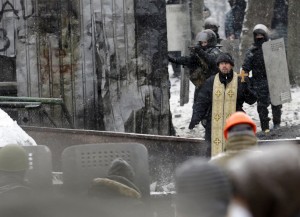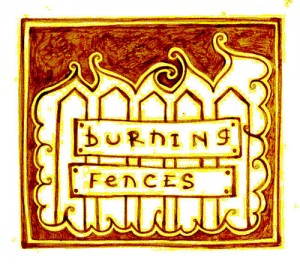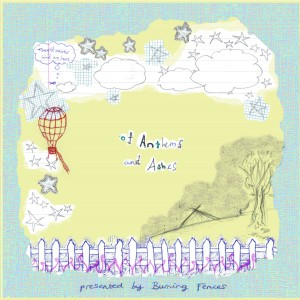
Monks should practice this zeal with ardent love…
What has happened to the UK?
We live in interesting times!
On the Sunday morning after the UK voted to leave the European Union the lectionary epistle reading was Galatians 5:1, 13-25.
For freedom Christ has set us free. Stand firm, therefore, and do not submit again to a yoke of slavery…For you were called to freedom, brothers and sisters; only do not use your freedom as an opportunity for self-indulgence, but through love become slaves to one another. For the whole law is summed up in a single commandment, “You shall love your neighbour as yourself.” If, however, you bite and devour one another, take care that you are not consumed by one another. Live by the Spirit, I say, and do not gratify the desires of the flesh. For what the flesh desires is opposed to the Spirit, and what the Spirit desires is opposed to the flesh; for these are opposed to each other, to prevent you from doing what you want. But if you are led by the Spirit, you are not subject to the law. Now the works of the flesh are obvious: fornication, impurity, licentiousness, idolatry, sorcery, enmities, strife, jealousy, anger, quarrels, dissensions, factions, envy, drunkenness, carousing, and things like these. I am warning you, as I warned you before: those who do such things will not inherit the kingdom of God. By contrast, the fruit of the Spirit is love, joy, peace, patience, kindness, generosity, faithfulness, gentleness, and self-control. There is no law against such things. And those who belong to Christ Jesus have crucified the flesh with its passions and desires. If we live by the Spirit, let us also be guided by the Spirit.
Enmities, strife, jealousy, anger, quarrels, dissensions, factions, envy; these were the words being used as the ripples of the UK’s decision were felt by all of us. Both major political parties went into melt down as David Cameron resigned triggering a leadership race and then the Labour party followed suit with several resignations and a leadership coup. Scotland began rethinking their independence which, strangely UKIP are dead against because they feel Scotland is better in a union than out… No one seemed totally comfortable with the way things were turning out. Boris Johnson and Michael Gove’s announcement was downbeat to say the least. The political jostling had begun!
Throughout the debate it was clear that what the voting public needed were facts, but who do we trust to give us the facts? As Michael Gove interestingly stated,
I think the people in this country have had enough of experts.
Although we needed facts what we wanted was ‘passion’. The ‘Trump Effect’ (which is sadly now a well known phrase!) is the replacement of intellectual reason with courage in conviction.
They aren’t afraid to say it as it is.
They are passionate about their beliefs.
Nigel Farage, the main force behind the referendum, has now resigned having achieved what he wanted in politics. He worked tirelessly to achieve his aim and ambition with great zeal but at what cost? To be more specific; in what manner? For me passion and zeal, unbridled by reason, faithfulness or stability leads to division. This is what is being outlined in the Galatians passage above.
For you were called to freedom, brothers and sisters; only do not use your freedom as an opportunity for self-indulgence, but through love become slaves to one another. For the whole law is summed up in a single commandment, “You shall love your neighbour as yourself.” If, however, you bite and devour one another, take care that you are not consumed by one another.
When you sow in division, you reap in division.
I want to be clear that, despite my vote to remain in the EU, my concern and disappointment is rooted not in the outcome of the vote itself but in the nature that the debate was done and the precedent it has set for the future of our society. As always my judgement on the morality of a decision is based not on the decision itself but on the process and means by which the decision was arrived at. If the vote had gone the other way, I’d have still been upset and uncomfortable about the decision (albeit less intensely).
I have, as regular readers of this blog will know, for a long time been criticising the direction of our society in the UK over the last few decades. At the heart of my criticism and concern is the liberal, individualised approach to politics which places the individual desires and passions at the heart of all conversation. What matters most in debates is not reason but what a person thinks and feels. The subjective voice is unassailable and if someone’s beliefs are criticised then the opponent is labelled ‘intolerant’. Opinion is held higher than than fact or truth because there is no longer any objective truth. It comes down to what we ‘reckon’. This leads to us ensuring we get what we want but never paying the cost to get what we need.
What was obvious throughout the debate and in the aftermath of the referendum was that we the voters, en masse, didn’t know what we were doing. We were not told all the information we were fed lies from both sides and as the reality hit we were all as confused as before. We talk about the value and success of democracy but what the referendum did show me was that democracy doesn’t work because it relies on the generally uninformed voter making a decision which inevitably goes to the person who is charismatic and not for the one who is able to make the change to society that most of us don’t know we need. The referendum was won, not by truth but by personality.
Plato, in his book ‘Republic’, depicts democracy as a denigration of strong governance and places the democratic regime just above tyranny. The democratic man, which he uses to portray the character of democracy, is a man who is free to do what they want and live how they want. This democratic man is ruled by his passions and base desires. He is uneducated with little self control. Democracy is painted as self-autonomous units fighting and competing to survive… sounds like the UK at the moment!
When reading Galatians a day after the referendum it was this depiction of democracy that came to mind as I prepared to preach into a society where the political, economic and social stability of our nation was in chaos. Markets were uncertain. Communities were divided and a rise in xenophobia and racism became prevalent. Families were divided deeply and there was no sign of any leadership. This is the fruit of living life by our flesh, our passions.
The alternative, Paul argues, is to die to the flesh.
And those who belong to Christ Jesus have crucified the flesh with its passions and desires.
The referendum was also a debate about identity. We, as a nation, are struggling to articulate a shared identity due to the aggressive pursuit of the individual identity in our capitalist, neo-liberal culture. There is no longer a shared narrative to our lives together. This is why the concept of family, community, fellowship is eroded and there is such high levels of loneliness, mental health issues, depression, anxiety and violence; and it is that one word which describes the debate and the fruit of the vote to leave, on both sides: ‘violence’.
Violence is rooted in fear. Violence is the response when we feel threatened. Violence is characterised by the cross. So what should our response be? How then do we live?
Love.
This is not the love that allows people to live how they want but the love which desires that people belong and are brought together. This love is not just allowing others to exist nearby but a desire for transformation and growth. This love is rooted in the monastic vow of stability, obedience and ongoing transformation. Esther de Waal writes,
Genuine love is free from exploitation or the manipulation of others. Where this is missing love becomes a delusion, a subterfuge, a means to an end. The patience and gentleness of verse 5 are again virtues which Benedict admires and which he has been encouraging. This is the opposite of that violence which is not limited to aggressive behaviour but may be a reflection of the hidden violence of feelings which comes out in tone of voice or the glance… The ‘wicked zeal of bitterness’ must refer to the rivalries and power games that can tear communities apart, the sort of competition that is unsuitable in the body of Christ. If you must compete, he seems to say, at least compete in love! (Esther de Waal, A Life Giving Way: a commentary on the Rule of St. Benedict (London: Continuum, 1995) p.211)
Paul contrasts the life lived by the passions of the flesh as a life guided by God’s Spirit.
By contrast, the fruit of the Spirit is love, joy, peace, patience, kindness, generosity, faithfulness, gentleness, and self-control.
To live by the Spirit one must die to the flesh. This is what is being outlined by St. Benedict in this penultimate chapter of his Rule.
Let them, “in honour prevent one another” (Rom 12:10). Let them accept each other’s frailties (of body and soul). Let them try to outdo each other in obedience. Let no one do what is best for himself, but rather what is best for another. Let them expend the charity of brotherhood in chaste love.
I’m a passionate person; I feel things powerfully and I have strong convictions but I know I must learn to control and master that passion by deliberately and intentionally dying to self and being drawn into the community of love and respect. I must establish my identity in Christ and allow him to form me in his likeness.
Do nothing from selfish ambition or conceit, but in humility regard others as better than yourselves. Let each of you look not to your own interests, but to the interests of others. Let the same mind be in you that was in Christ Jesus, who, though he was in the form of God, did not regard equality with God as something to be exploited, but emptied himself, taking the form of a slave, being born in human likeness. And being found in human form, he humbled himself and became obedient to the point of death— even death on a cross.(Phil 2:3-8)
Reflection
…salvation is not an individual project, but one we undertake with and among our brothers and sisters in Christ. We work out our salvation not only in fear and trembling, but also in community. It is in our care for, and interaction with, one another that we become the body of Christ, now and forever. (Norvene Vest, Preferring Christ: a devotional commentary on the Rule of St. Benedict (New York: Morehouse Publishing, 1990) p.267)
Now, more than ever, the UK needs to be re-trained in living with others. There was a great cry, after the vote on the UK membership in the EU, to come together and be united. It sounded so simple but we have lost the art of doing that. Living with others is a cost to our personal sense of freedom. We have heard a lot about freedom and our own sovereignty over the referendum debate but I repeat Paul’s words to the Galatians,
For you were called to freedom, brothers and sisters; only do not use your freedom as an opportunity for self-indulgence, but through love become slaves to one another.
It is the paradox of the Christian life that we have been given freedom to choose to become slaves to one another in Christ. Community is not easy and so the need for guidelines is so important. The Rule of St. Benedict is the greatest example of such guidelines which hold people together when every passion and zeal is telling them to flee or worse do violence in thought, word or deed. A Rule of life must cover every aspect of one’s life; the thoughts (orthodoxy), the feelings (orthopathy) and the actions (orthopraxis). It must be shared with those you live with in order that everyone exists within the same narrative because with no shared story there is no shared values, direction, destination and ultimately no shared character/identity.
We have voted to leave the EU to regain our own sovereignty so how do we now build a common life together? On this issue there remains silence or rather there remains a competition for ideological power or individualised tolerance. The Kingdom of God is established when we allow our political ideology, our self-identity, our sexuality, our gender, our class, our weatlh or status to become secondary to the identity which brings joy, peace, patience, kindness, generosity, faithfulness, gentleness, and self-control. I appreciate that may be interpreted as another subjective option of many in this pluralistic society but, as a Christian, I can see no other option offering such hope.
How is it possible that the gospel should be credible, that people should come to believe that the power which has the last word in human affairs is represented by a man hanging on a cross?I am suggesting that the only answer, the only hermeneutic of the Gospel is a congregation of men and women who believe it and live by it…. Its character is given to it, when it is true to its nature, not by the characters of its members but by his character. Insofar as it is true to its calling, it becomes the place where men and women and children find that the gospel gives them the framework of understanding, the “lenses” through which they are able to understand and cope with the world. (Leslie Newbigin, The Gospel in a Pluralist Society (London: SPCK, 2004) p.227)
The New Monastic movement is a fresh call from God to intentional place ourselves in the environment of community under a framework that will shape us into the character of Christ. That was the goal of St. Benedict and the other monastic fathers and mothers and it is the goal of this new wave of monastics. The sharing of a way of life challenges the individualised culture we now suffer within. We need to commit to a Rule which is not shaped by me or my desires but is shaped for me and my transformation and in which my passion and zeal will be focussed solely on seeking God’s will in our life together; redemption of my flesh to be guided by the Spirit.
Almighty and everlasting God, by whose Spirit the whole body of the Church is governed and sanctified:hear our prayer which we offer for all your faithful people, that in our vocation and ministry we may serve you in holiness and truth to the glory of your name. Raise up leaders of character who will lead us to inhabit your story of hope and in which all of us find our rest.
Come, Lord Jesus.
 …Ok. Since I wrote that reflection there has been a growing sense of some footing being lost amongst us. We have felt, at different moments, that we have lost our way or the passion has waned. This has been due to various small events in the life of our community which have combined to create not a destruction or a despair but a niggle, a question to arise: what are we doing?
…Ok. Since I wrote that reflection there has been a growing sense of some footing being lost amongst us. We have felt, at different moments, that we have lost our way or the passion has waned. This has been due to various small events in the life of our community which have combined to create not a destruction or a despair but a niggle, a question to arise: what are we doing? A wise brother amongst us wrote a deeply honest and profound response to my call for a discussion. He named the beauty of Burning Fences as ‘a clearing’. He writes,
A wise brother amongst us wrote a deeply honest and profound response to my call for a discussion. He named the beauty of Burning Fences as ‘a clearing’. He writes, This is our quest: to inhabit, together, No-Man’s Land. To share the space making no claim on it for ourselves or the parties, agendas and personal empires which we are tempted to enforce. We desire, however, to build our home there for to be at peace one must feel a sense of belonging. To what are we committing and how can that be spoken in this between place?
This is our quest: to inhabit, together, No-Man’s Land. To share the space making no claim on it for ourselves or the parties, agendas and personal empires which we are tempted to enforce. We desire, however, to build our home there for to be at peace one must feel a sense of belonging. To what are we committing and how can that be spoken in this between place? I have had the privilege of being welcomed into a community over the last year which has had an ongoing and deeply transformative impact on me and my vocation as an ordained priest. The community are mainly in their twenties and would, at a cursory glance, be classified as ‘arty’ intellectual types, although this is not entirely true; not that they are not either of those things but that which unites this group isn’t those two general categories. It is only in the last month or so that I have begun to grasp the ‘charism’, the ‘je ne sais qua’, of Burning Fences.
I have had the privilege of being welcomed into a community over the last year which has had an ongoing and deeply transformative impact on me and my vocation as an ordained priest. The community are mainly in their twenties and would, at a cursory glance, be classified as ‘arty’ intellectual types, although this is not entirely true; not that they are not either of those things but that which unites this group isn’t those two general categories. It is only in the last month or so that I have begun to grasp the ‘charism’, the ‘je ne sais qua’, of Burning Fences. Before I stumbled through the doors one cold December night, this community had been meeting, singing and telling stories for a year or more. They had produced a CD of songs which they had developed entitled ‘Of Anthem and Ashes’. The images that were resonating with them then and remain reverberating through our times together are phoenix like resurrections; songs sung in the rubble, new plants breaking through concrete. These images have always resonated with me and it’s why I know I am a ‘fence burner’.
Before I stumbled through the doors one cold December night, this community had been meeting, singing and telling stories for a year or more. They had produced a CD of songs which they had developed entitled ‘Of Anthem and Ashes’. The images that were resonating with them then and remain reverberating through our times together are phoenix like resurrections; songs sung in the rubble, new plants breaking through concrete. These images have always resonated with me and it’s why I know I am a ‘fence burner’. The times when Church is most frustrating, for me, is in the ‘necessary organization’. What irks me is the lack of convincing Biblical precedent. The Temple system failed and yet here we are in the 21st century rebuilding it. I get it, organic is messy and uncontrollable, unpredictable but it’s how the world functions. We human beings are devastating when we control and tinker with the organic creation. We’ve tried to organize the world and what we discover is we’re trapped in boxes which do not fit nor encourage us to flourish in the ways in which we should.
The times when Church is most frustrating, for me, is in the ‘necessary organization’. What irks me is the lack of convincing Biblical precedent. The Temple system failed and yet here we are in the 21st century rebuilding it. I get it, organic is messy and uncontrollable, unpredictable but it’s how the world functions. We human beings are devastating when we control and tinker with the organic creation. We’ve tried to organize the world and what we discover is we’re trapped in boxes which do not fit nor encourage us to flourish in the ways in which we should.